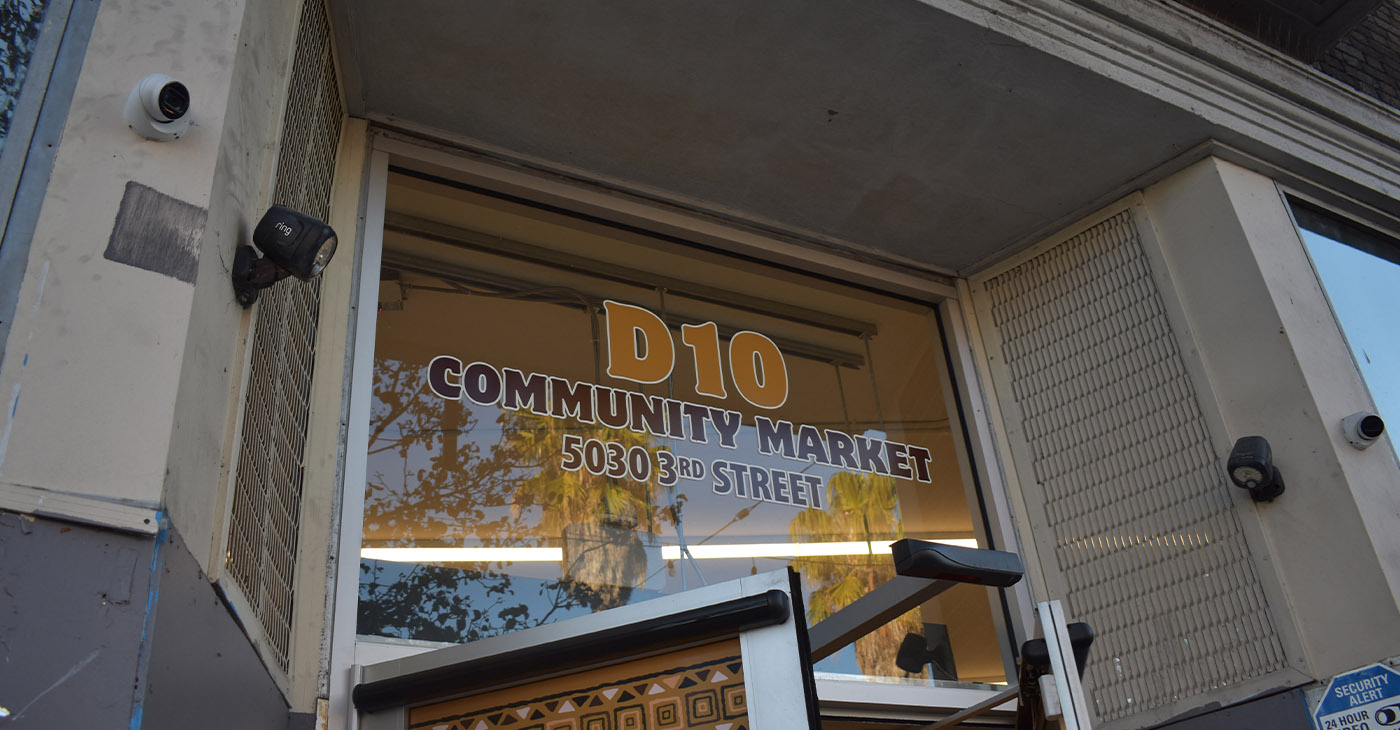Food
Councilman voices opposition to bill extending drinking hours
WAVE NEWSPAPERS — City Councilman Paul Koretz and a group of activists spoke out May 3 against a bill before the state Legislature that would allow Los Angeles and nine other cities to extend alcohol sales to 4 a.m. Koretz and the activists — including members of Alcohol Justice and the California Alcohol Policy Alliance — held a news conference outside Los Angeles City Hall to oppose SB 58.
LOS ANGELES — City Councilman Paul Koretz and a group of activists spoke out May 3 against a bill before the state Legislature that would allow Los Angeles and nine other cities to extend alcohol sales to 4 a.m.
Koretz and the activists — including members of Alcohol Justice and the California Alcohol Policy Alliance — held a news conference outside Los Angeles City Hall to oppose SB 58, the latest of several attempts by Sen. Scott Wiener, D-San Francisco, to pass a law that would allow bars in some cities to stay open later than 2 a.m.
“Once again we’re here fighting a bill that is so persistent that it has earned the name, the Zombie Bill, because we just can’t kill it,” Koretz said. “For the fourth time since 2014, Sen. Scott Wiener has reintroduced the bill that would extend alcohol sales from 2 a.m. to 4 a.m. No matter how many times the bill is beaten down by those of us who understand that defeating this bill is a life or death issue, Sen. Wiener and bar owners who seem willing to trade people’s lives for liquor profits come back again and again.”
Koretz introduced a resolution in March against the bill and held several news conferences in opposition to the idea of earlier bar times when Weiner was trying to pass the previous versions.
“This bill fails to address who will pay for the alcohol-related harms that this bill will cost. This bill will endanger all the lives of the commuters that will be going to work in the early hours,” said Veronica De Lara, co-chair of the California Alcohol Policy Alliance.
The reintroduced Let Our Communities Adjust Late Night Act (LOCAL) would grant Los Angeles, San Francisco, Oakland, Sacramento, Long Beach, West Hollywood, Coachella, Cathedral City, Fresno and Palm Springs the power to extend alcohol sales until as late as 4 a.m.
The bill’s supporters argue that the law banning alcohol sales after 2 a.m. is an outdated requirement written in 1935 and is not in line with Los Angeles being one of the entertainment capitals of the world. They also say it would help businesses while giving the decision-making power to local jurisdictions.
The nonprofit group Alcohol Justice, which has opposed Weiner’s bills, said findings from various domestic and international studies have found that extending bar hours increases alcohol-related harm, including motor vehicle collisions.
The Los Angeles Times Editorial Board endorsed an earlier version of Wiener’s bill in 2017, saying “there’s no firm science behind last-call laws, no data that prove that 2 a.m. is better than 4 a.m. or 6 a.m. or any other time. The laws are more a reflection of a state’s history, its cultural practices and its politics.”
Activism
San Francisco Is Investing Millions to Address Food Insecurity. Is Oakland Doing the Same?
There are over 350 grocery programs across San Francisco. Less than a handful in District 10, a neighborhood classified as a food desert, and includes Hunters Point, one of the lowest income areas in the city.

By Magaly Muñoz
On a Thursday evening in February, Marquez Boyd walked along the aisles of San Francisco’s District 10 Community Market looking for eggs and fresh produce to take home to his children. He has been trying new recipes with ingredients he previously couldn’t afford or access.
“I learned how to cook greens since they got a lot of fresh greens here,” Boyd said. “All that stuff is better and more healthy for my kids because they’re still young.”
Meals filled with fresh produce are now possible for Boyd since the District 10 market in Hunters Point opened in 2024 when Bayview Senior Services, a non-profit running the program, received a $5 million investment from the city of San Francisco.
The market is a twist on a traditional food bank, where people can often wait in long lines for pre-bagged groceries they may not need. Here, the goal is to offer people in need a more traditional grocery store setting, with a bigger range of healthy options and less shame for needing assistance.
It’s a twist that Boyd appreciated. “This set up is way better as opposed to maybe like a food bank line,” he said. “It’s easier and faster.”
Similar models exist in Santa Barbara and Tennessee.
There are over 350 grocery programs across San Francisco. Less than a handful in District 10, a neighborhood classified as a food desert, and includes Hunters Point, one of the lowest income areas in the city.
Census Bureau data show that the median income for households in the 94124 zip code, where Hunters Point is located, is just under $83,000 annually. Black households earn about $46,000, Native Hawaiian or other Pacific Islanders earn almost $41,000, and Hispanic households make just above the median income- an average of $86,000.
Located at 5030 3rd Street, the aisles are lined with fresh produce, canned goods, bread and snacks. While refrigerators and freezers in the back of the market are filled with dairy products and meat.
The best part- everything inside is free for eligible customers.

The San Francisco District 10 Community Market is stocked with fresh produce, dairy, meat and chicken, bread, and cultural food staples. Directors of the market say they pride themselves on providing healthy options for community members. Photo by Magaly Muñoz.
“The interesting thing about this market is that it’s a city-funded effort to create something besides the average food line to give more dignity and choice than is normally given to low-income people,” said Cathy Davis, executive director of Bayview Senior Services.
Davis said people feel more comfortable coming into the market because they can choose the food they want and at a time that’s convenient for them.
Boyd, a single father of two kids, recently lost his job and relied on his sister’s generosity before discovering the market. He comes to market when he gets off of work in the evening.
“It’s a lot of people in these communities that don’t get a chance to eat healthy,” Boyd said. “They don’t have the money to go to grocery stores to buy expensive stuff.”
Another shopper, Rhonda Hudson, said the market helped her meet her grandson’s diet-related health problems. She used to travel outside the neighborhood for affordable groceries, but now she no longer has to.
According to the city’s Human Services Agency, there are no plans to expand the markets in San Francisco due to budget constraints.
But Davis isn’t worried about losing the market funding.
“City leaders were on board with creating it and finding the money to put it together so I would say we didn’t have to advocate because it came through the government. Now it’s our job to keep it going to prove that it’s a pilot worth maintaining,” Davis said.
District 10 Supervisor Shamann Walton, who co-sponsored the ordinance, said that projects like the market are “essential to our neighborhoods,” where access to affordable food has been a challenge.
“Investing in local community markets helps ensure that families have reliable, healthy food options close to home, addressing food insecurity and supporting the well-being of our community regardless of income,” Walton said.

Rhonda Hudson is a shopper of the District 10 Community Market in San Francisco. The fresh produce she gets at the free grocery store program helps her grandson, who has a diet-related illness, stay healthy. Photo by Magaly Muñoz.
Why Not Oakland?
Only slightly larger than San Francisco, Oakland has over 400 food distribution sites. Oakland provides grants to nonprofit-run organizations who run grocery programs. But in recent months, the city has begun to reduce those, forcing some organizations to regroup, and making it challenging to implement a community market similar to San Francisco’s.
The Oakland Post repeatedly reached out to city and county officials for comment on the story but did not receive a response.
At several food banks across West and East Oakland, residents shared their frustrations about long lines, wilting produce, and limited food choices.
At one food bank, located at Christian Tabernacle Church, a young mother, who requested anonymity for privacy reasons, waited in the rain for over three hours for a single bag of groceries.
“I like to get here early because I get better [quality] fruits and vegetables,” she said. She added that it’s not a lot of food that she receives for her family, but it helps close the gap when her budget is tight.
Behind her, several other women waited their turn. Neither the timing of the distribution nor the location of the food bank fit their schedules, the women said, but their choices feel limited.
Only a handful of Oakland food bank sites operate throughout the day, like the San Francisco market. Most food distribution programs are sustained by Alameda County Food Bank, not by city funding. Private grants and donations also help fund the programs.
Securing city funding is increasingly challenging. Oakland faces a $130 million budget shortfall, with a projected $280 million deficit in the next biennial cycle. Citing budget concerns, the city has reduced numerous department budgets and grants. One of those cuts included slashing the longstanding SOS Meals on Wheels grant, which helped provide food to 3,000 seniors.
Charlie Deterline, executive director of Meals on Wheels, said the termination of their $150,000 annual grant could mean that Oakland residents might see a change in the amount of meals they receive. The organization has gone 19 months without funding from that grant, Deterline said, but “continued working on good faith from the city” because they were assured they would be paid out. Now, Deterline is having doubts.
The program also received a grant of more than $125,000 from the Sugar Sweetened Beverage Tax. Yet, on June 12, the city informed grant recipients that the funding could be rescinded in order to balance the budget. That ultimately happened, said Deterline.
“Oakland is by far the most expensive city for us to operate in. It is also where the greatest need is – for us to meet that need, it will take the entire community coming together,” Deterline said.
From the sugar tax, money from that measure is also not being allocated correctly as the majority of the funding has been used to fund government services, said members of the SSB tax advisory board.
The tax generates around $7 million annually. 25% to 40% of the funding goes towards grants for community based organizations instead of the 60% allocation that the SSBT advisory board recommended the city to use for health programs. The rest of the funding goes to the city, according to Oakland’s mid-cycle budget.
Advisory board member Dwayne Aikens said he’s not sure Oakland will ever renew the grants that have been cut from this tax. “I’m looking at the conditions of the city and I’m not optimistic,” Aikens said. “If they don’t have the money now, I don’t think they’ll have the money in the future.”
Aikens said the tax was “kind of a waste.” He’s heard displeasure from the community about the lack of funding into Black and Brown neighborhoods, groups who typically live in areas of Oakland that see health and income disparities.
Meanwhile, the Community Market, which reflects the diversity of the Bayview Hunters Point community, is investing in over 800 of the city’s most vulnerable households. In-store staff and directors speak the languages common to the area and the program provides a culture-of-the week selection of foods for those interested in trying something new.
Davis said it’s up to local municipalities to ensure that residents don’t go to bed hungry, and investments need to be made in order to combat the pockets of neighborhoods who are on the brink of food insecurity.
“That’s just such a core responsibility and a core goal of everyone, to make sure that people are fed and healthy. It’s not a luxury item,” Davis said. “It’s something that needs to happen, whether we’re in a budget crisis or not.”
Reporter Magaly Muñoz produced this story as part of a series as a 2024 USC Annenberg Center for Health Journalism Data Fellow and Engagement Grantee.
Activism
Oakland Poll: Tell Us What You Think About the Cost of Groceries in Oakland
Food banks and grocery giveaways are a large part of the resources nonprofits in Oakland prioritize, particularly in areas like East and West Oakland where low-income families of color tend to reside. These neighborhoods are often labeled as “food deserts” or communities that have limited access to affordable and nutritious foods.

By Magaly Muñoz
In 2023, the average spending on groceries increased by nearly $30 each month from the year before;people are spending over $500 a month to put food on the table.
Through previous reporting by the Post, we’ve learned that families in Oakland are depending more and more on free or low cost groceries from food banks because they can no longer afford the rising costs of food at the store.
Food banks and grocery giveaways are a large part of the resources nonprofits in Oakland prioritize, particularly in areas like East and West Oakland where low-income families of color tend to reside. These neighborhoods are often labeled as “food deserts” or communities that have limited access to affordable and nutritious foods.
We’ve recently spoken to families across these two areas of Oakland and have heard several stories that all point to one problem: food is expensive. Some individuals are spending upwards of $150 a week for themselves or double if they have teens or small children in the family.
We’ve also heard stories of people with chronic illnesses like diabetes and high blood pressure struggling to maintain their diets because they’re having a hard time affording the food that helps them stay healthy.
Do these experiences sound similar to what you or your family are dealing with every month? Are you struggling to afford your basic groceries every week? Do you depend on food banks to help you get by? Are there any chronic illnesses in your household that need to be managed by a special diet?
We want to hear about your experiences and ideas for solutions!
The Oakland Post is investigating food access in Oakland and how residents are surviving as the cost of living continues to increase. Your experiences will help shape our reporting and show local leaders the need to invest in our communities.
In order to get as much feedback as possible, we ask that you click this link to fill out a brief questionnaire or visit tinyurl.com/Oakland-Post-food-survey. You can also scan the QR code above to reach the survey. After you fill it out, please consider sharing the link with your friends and family in Oakland.
If you have questions, please reach out to our Oakland reporter Magaly Muñoz at mmunoz@postnewsgroup or text/call her at (510) 905-5286.

Activism
Oakland Trybe Hosts Community Christmas Wonderland
According to the Oakland Trybe Clinton Park Site Director, Chien Nguyen, Oakland Trybe serves the community every Sunday afternoon. “Today has extra fanfare because it’s Christmas and the end of the year, but we feed and build community here every week throughout the year,” said Nguyen.

By Carla Thomas
On Dec. 22, at the corner of 18th and Foothill in Oakland, San Antonio Park was transformed into a winter wonderland, courtesy of the non-profit Oakland Trybe.
The festiveness of the holiday was in full effect with children reaching for snow flurries as an artificial snow machine sprayed snowflakes from the park’s hillside. Nearby, about a dozen kids jumping up and down in an extra-large bounce house added more cheer to the atmosphere.
Gospel music filled the air. Children built gingerbread houses and designed homemade tree ornaments at the crafts table while others lined up for Christmas gifts and photos with Santa Claus.
A Black Santa Claus portrayed by Oakland Trybe staffer,” Isaiah Jackson, was seated beside the Christmas tree filled with personalized ornaments as children received gifts. “It’s fun to interact with the community and provide activities and a space for the kids to let loose in a safe environment,” said Jackson who serves as Oakland Trybe’s Operations Outreach Specialist.
According to the Oakland Trybe Clinton Park Site Director, Chien Nguyen, Oakland Trybe serves the community every Sunday afternoon. “Today has extra fanfare because it’s Christmas and the end of the year, but we feed and build community here every week throughout the year,” said Nguyen.
Below, at the food court that Ngyuen says was built by staff, volunteers, and organization interns, kids played soccer on the two newly resurfaced playgrounds.
Parents lined up with their little ones for a plate of smoked chicken, mashed potatoes, stuffing, and salad. Ladies serving the food wore festive Christmas aprons bearing a customized spin on the Heinz catsup logo: “Catch Up With Jesus. Lettuce Praise and Relish Him, Cuz He Loves Me From My Head To ma toes.”
“It’s nice to serve and see everyone so happy,” said Mei Fu,” who is also an Oakland Trybe Operations and Outreach Specialist.
“Oakland Trybe is the largest distributor of food in Oakland from the Alameda County Food Bank,” said Nguyen. “Today, we served about 500 meals.”
Executive Director of Oakland Trybe Andrew Park, who is a pastor, said, in addition to providing food and entertainment, he and a small group were praying for guests who were ill. “We are community-based and welcome all, but we also know the power of prayer,” said Park. “By meeting the community’s needs and bringing them together, we can combat hate and racism at its core.”
With a rise in racism and hate in the world, Oakland Trybe considers its mission as a community builder combatting racism and other forms of hate by fostering programming that meets the needs of the community.
“Our organization was built with the need to support the community and bring people together,” said Park. “Together, with common goals, we can ensure people get to know one another and that breaks down cultural and racial barriers.”
According to Nguyen, Park does not pastor at a church. However, through his faith, he serves the larger community. “This is his church, and I appreciate him as a mentor,” said Ngyuen who is Buddhist. “This is how you reach the community, build community, and heal.”
-

 #NNPA BlackPress3 weeks ago
#NNPA BlackPress3 weeks agoTarget Takes a Hit: $12.4 Billion Wiped Out as Boycotts Grow
-

 Activism3 weeks ago
Activism3 weeks agoUndocumented Workers Are Struggling to Feed Themselves. Slashed Budgets and New Immigration Policies Bring Fresh Challenges
-

 #NNPA BlackPress3 weeks ago
#NNPA BlackPress3 weeks agoBREAKING Groundbreaking Singer Angie Stone Dies in Car Accident at 63
-

 Activism3 weeks ago
Activism3 weeks agoOakland Post: Week of February 26 – March 4, 2025
-

 #NNPA BlackPress3 weeks ago
#NNPA BlackPress3 weeks agoApple Shareholders Reject Effort to Dismantle DEI Initiatives, Approve $500 Billion U.S. Investment Plan
-

 #NNPA BlackPress3 weeks ago
#NNPA BlackPress3 weeks agoNAACP Legend and Freedom Fighter Hazel Dukes Passes
-

 #NNPA BlackPress3 weeks ago
#NNPA BlackPress3 weeks agoSeniors Beware: O’Malley Says Trump-Musk Cuts Will Cripple Social Security
-

 #NNPA BlackPress3 weeks ago
#NNPA BlackPress3 weeks agoTrump Kicks the Ukrainian President Out of the White House



















































